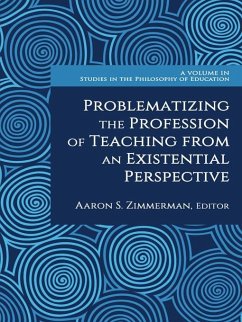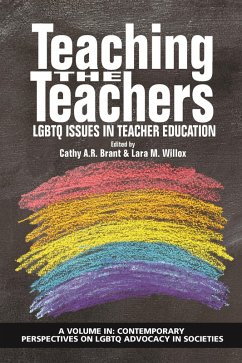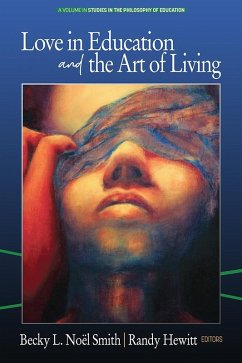Teachers not only serve as caretakers for the students in their classroom but also serve as stewards for society's next generation. In this way, teachers are charged with responsibility for the present and the future of their world. Shouldering this responsibility is no less than an existential dilemma that requires not only professional solutions but also personal responsibility rooted in subjective authenticity. In the edited volume, authors will explore how the philosophy of Existentialism can help teachers, teacher educators, educational researchers, and policymakers better understand the existential responsibility that teachers shoulder.The core concepts of Existential philosophy explored in this edited volume imply that a teacher's lived experience cannot be defined solely by professional knowledge or dictates. Teachers have the capacity to create subjective meaning through their own agency, and there is no guarantee that those subjective meanings will accord with professional dictates. Furthermore, there is no guarantee that professional dictates are more valid than the existential realities of individual teachers. The philosophy of Existentialism encourages individuals to reflect on the existential realities of isolation, freedom, meaninglessness, and death in an effort to propel individuals towards more authentic ways of engaging in the world. The chapters of this edited volume advance the argument that being and becoming a teacher must be understood - at least in part - from the subjective perspective of the individual and that teachers are responsible for authoring the meaning of their lives and of their work.ENDORSEMENTS:At a time when the purpose of education is increasingly conceived in terms of attaining skills necessary for the job market, and teaching and learning are assessed in terms of objective outcomes, this collection of fresh essays on the existential dimension of education as an institution offers an indispensable corrective. In wide-ranging reflections on the professional and inter-personal aspects of education, the authors show how existentialism's emphasis on subjectivity, authenticity, and lived experience can enrich our thinking about teaching and learning and improve our practices in the classroom as it exists now. Any educator seriously interested in his or her profession will find timely insights in this thoughtfully conceived volume.- Steven Crowell, Rice UniversityHistorically, education and educational science have been torn between, on the one hand, ideas stressing technical rationality, efficiency, and evidence-based approaches and, on the other hand, ideas highlighting the need for deeper understandings and imaginative orientations. In the light of these trends, the book Problematizing the Profession of Teaching from an Existential Perspective is a fresh contribution that offers new insights to the field of teacher professionalism and teacher development. I recommend this book to everyone who is interested in gaining a deeper understanding of what it means to be and become a teacher.- Silvia Edling, University of Gävle
Dieser Download kann aus rechtlichen Gründen nur mit Rechnungsadresse in A, B, BG, CY, CZ, D, DK, EW, E, FIN, F, GR, HR, H, IRL, I, LT, L, LR, M, NL, PL, P, R, S, SLO, SK ausgeliefert werden.









